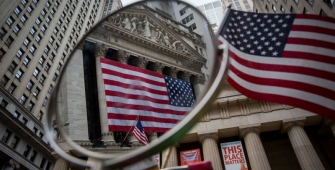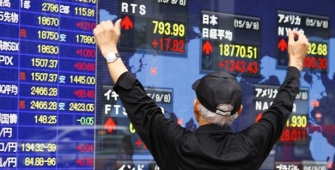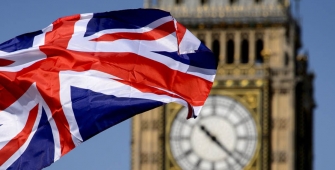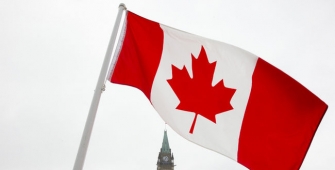InstaForex Gertrude
Active member
U.S. Producer Prices Drop, Unemployment Claims Rise

U.S. producer prices dropped for the first time in almost 1-½ years in December amid falling costs for services, which could weigh on expectations that inflation will pick up this year.
Separate data showed that initial claims for jobless benefits rose for the fourth consecutive week to over a three-month peak. Winter and snow in parts of the United States likely kept some workers at home, which accounts for the previous week's rise in unemployment claims.
The U.S. Federal Reserve is projecting three rate hikes for 2018. It raised rates three times in 2017.
According to the Labor Department, its producer price index for final demand dropped 0.1 percent in December. It was the first decline in the PPI since August 2016 and followed two consecutive monthly growth of 0.4 percent.
The PPI increased 2.6 percent from the same period in 2016, after accelerating 3.1 percent in November.
A key gauge of underlying producer price pressures, excluding food, energy and trade services, climbed 0.1 percent in December. The so-called core PPI rose 0.4 percent in November. It increased 2.3 percent in the 12 months through December after rising 2.4 percent in November.
In the separate report, the Labor Department said initial claims for state unemployment benefits rose 11,000 to a seasonally adjusted 261,000 for the week ended Jan. 6, the highest level since late September.
Claims have risen since mid-December, though the data tend to be volatile during year-end holidays.
Prime News are provided byInstaForex.

U.S. producer prices dropped for the first time in almost 1-½ years in December amid falling costs for services, which could weigh on expectations that inflation will pick up this year.
Separate data showed that initial claims for jobless benefits rose for the fourth consecutive week to over a three-month peak. Winter and snow in parts of the United States likely kept some workers at home, which accounts for the previous week's rise in unemployment claims.
The U.S. Federal Reserve is projecting three rate hikes for 2018. It raised rates three times in 2017.
According to the Labor Department, its producer price index for final demand dropped 0.1 percent in December. It was the first decline in the PPI since August 2016 and followed two consecutive monthly growth of 0.4 percent.
The PPI increased 2.6 percent from the same period in 2016, after accelerating 3.1 percent in November.
A key gauge of underlying producer price pressures, excluding food, energy and trade services, climbed 0.1 percent in December. The so-called core PPI rose 0.4 percent in November. It increased 2.3 percent in the 12 months through December after rising 2.4 percent in November.
In the separate report, the Labor Department said initial claims for state unemployment benefits rose 11,000 to a seasonally adjusted 261,000 for the week ended Jan. 6, the highest level since late September.
Claims have risen since mid-December, though the data tend to be volatile during year-end holidays.
Prime News are provided byInstaForex.















